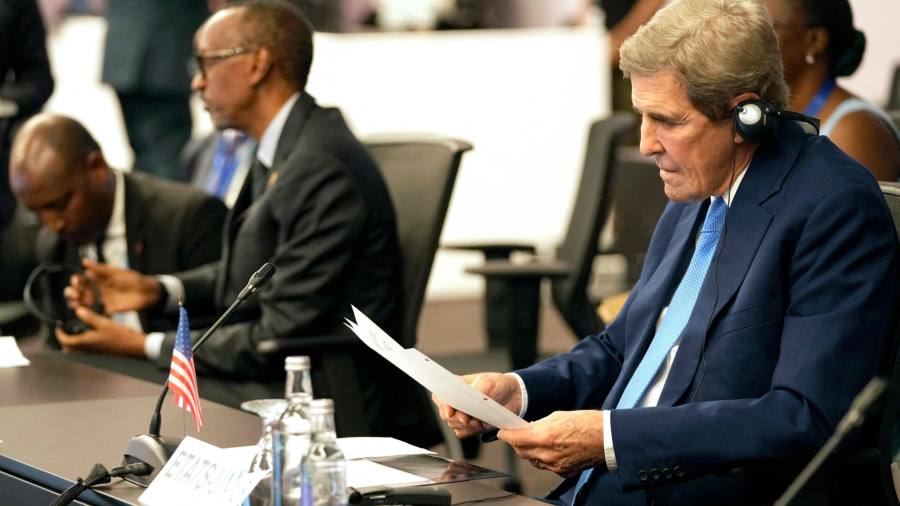
US climate envoy John Kerry has two big challenges on his hands. First, developing countries still burn a lot of fossil fuels to make electricity. Second — as UK taxpayers may soon find out — governments do not have a lot of money going spare.
Kerry is set to propose a voluntary scheme for big companies to fund the decarbonisation of power systems in the developing world. That would make political and economic sense.
There is a cost curve to global emissions. Phasing out coal or increasing renewables in countries which are sunny is cheaper per tonne of CO₂ than adding more solar to cloudy Germany’s power grid. And that is before we get on to the really expensive stuff, like installing heat pumps.
Suppose that a €1bn investment buys you roughly 1GW of solar panels. In Algeria these will run for 2,200 hours a year versus 1,000 in Germany. The resulting renewable electricity will cost roughly half as much. Land costs would be lower. Integration expenses should also be more affordable, for the reason that the local grid would not have a lot of intermittent renewables in it already.
Companies can already try to finance decarbonisation schemes via “voluntary” offsets. However, they have struggled to find credible projects. An example would be “safeguarded” forests subject to little threat of logging. The Kerry plan could help by targeting big energy infrastructure schemes via the governments of recipient countries.
The pitfall is that multinationals may feel little compulsion to spend shareholders’ money on decarbonising power grids in developing countries. It is not really their responsibility. Under current “science-based” rules for emissions targets, they would not get any credit for doing so.
That may yet change. There is talk of allowing companies to count emissions reduction credits to offset a small part of their own footprint. This smacks of a conceptual fudge. But it might jump start the market. There are other reasons why companies might choose to voluntarily tax themselves — including the kudos of joining the Kerry club.
But the cleanest solution would be for the governments of developed countries to impose a tax. They could direct receipts into long-term infrastructure projects at home and abroad. That would spur additional private investment made voluntarily.
More than anything, the Kerry plan points to the need for a multilateral transition plan for capital allocators to work to.